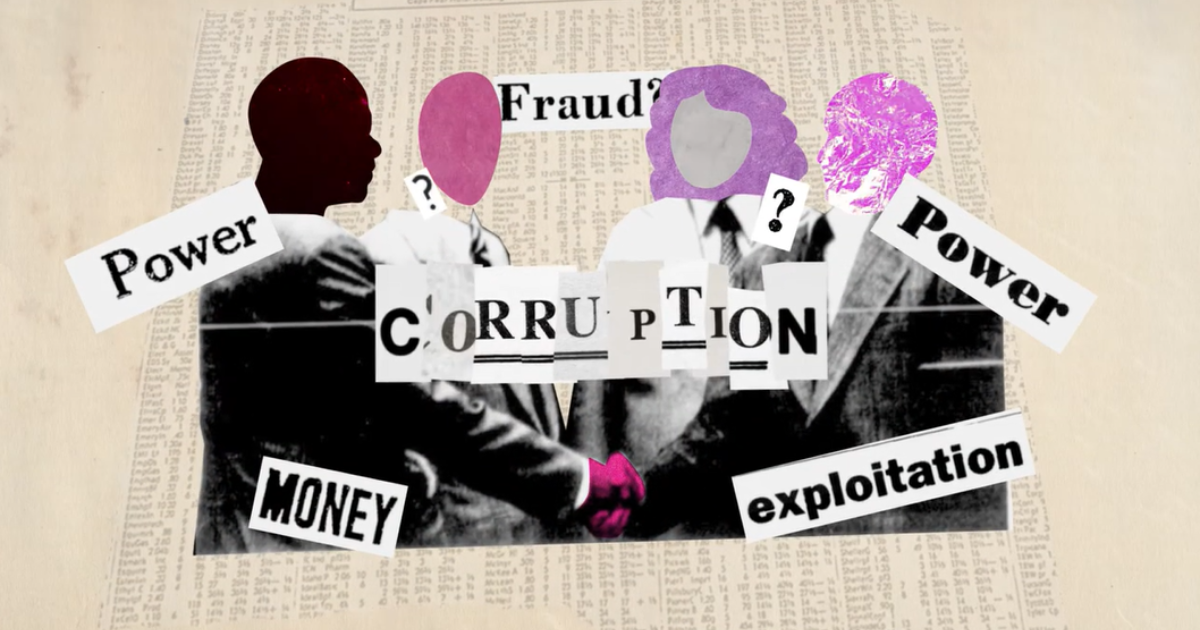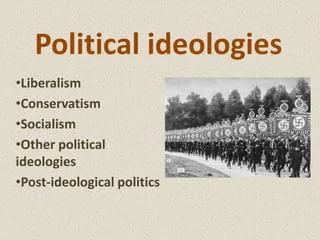How Political Corruption Impacts the Social and Political Landscape

The Undermining Force: Analyzing the Impact of Political Corruption on Democratic Institutions and Public Trust
Political corruption is a pervasive issue that plagues democracies around the world, regardless of their level of development or historical context. It is a cancer that slowly eats away at the foundations of democratic institutions and erodes public trust. In this comprehensive analysis, we will delve into the multifaceted ways in which political corruption impacts democratic systems and undermines the faith of the citizens who are meant to be the ultimate beneficiaries of these institutions.
Understanding Political Corruption
Before delving into the impact of political corruption, it's crucial to understand what it entails. Political corruption refers to the abuse of power and resources for personal gain within the political sphere. It can manifest in various forms, including bribery, embezzlement, cronyism, nepotism, electoral fraud, and even the subversion of democratic processes. The consequences of political corruption extend far beyond the immediate perpetrators, affecting the overall health of democratic systems.
Erosion of Democratic Institutions
Weakening of the Rule of Law: Political corruption often leads to the subversion of the rule of law. When those in power are engaged in corrupt practices, it becomes difficult to hold them accountable for their actions. This erosion of accountability undermines the very essence of democracy, as democratic institutions rely on the rule of law to function effectively.
Compromised Checks and Balances: In a healthy democracy, checks and balances ensure that power is not concentrated in one branch of government. However, political corruption can compromise these checks and balances. Corrupt politicians may influence or intimidate other branches of government, weakening their ability to act as effective checks on executive power.
Hollowed-Out Institutions: Over time, pervasive corruption can hollow out key democratic institutions. When citizens see that these institutions are unable to deliver on their promises due to corruption, they lose faith in the system as a whole. This can lead to disillusionment and disengagement from the political process.
Erosion of Public Trust
Cynicism and Apathy: Political corruption breeds cynicism among citizens. When people believe that their elected representatives are more interested in personal gain than the welfare of the public, they become disillusioned with the entire political process. This can lead to voter apathy and a decline in civic engagement.
Weakened Social Cohesion: Trust is a fundamental element of social cohesion in a democracy. However, political corruption erodes this trust, leading to societal divisions. When citizens lose faith in the fairness of their institutions, they may become more polarized and less willing to work together for the common good.
Economic Consequences: Corruption also has economic consequences. It diverts resources away from public services and infrastructure, leading to economic inefficiency and inequality. This, in turn, can exacerbate social unrest and further erode public trust in democratic institutions.
Impact on Vulnerable Populations
Political corruption disproportionately affects vulnerable populations. When resources meant for public welfare are siphoned off through corrupt practices, it is often the marginalized and disadvantaged who suffer the most. This exacerbates inequality and further erodes trust in the system's ability to address the needs of all citizens.
Weakening of International Reputation
Countries plagued by political corruption often suffer damage to their international reputation. This can result in decreased foreign investment, reduced diplomatic influence, and a tarnished image on the global stage. Such consequences can hinder a nation's ability to pursue its national interests effectively.
Recommendations for Combating Political Corruption
While the impact of political corruption on democratic institutions and public trust is undoubtedly profound, there are strategies and reforms that can help combat this pervasive issue:
Strengthening Transparency and Accountability: Transparency is a cornerstone of preventing corruption. Governments should implement robust mechanisms for disclosing political campaign financing, public procurement processes, and the allocation of public resources. Independent oversight bodies, such as anti-corruption agencies and ombudsmen, should be empowered to investigate and prosecute corrupt officials without political interference.
Enhancing Civic Education: An informed citizenry is crucial for a healthy democracy. Civic education programs can teach people about the importance of democratic institutions, their rights and responsibilities, and how to identify and combat corruption. A well-informed populace is more likely to hold politicians accountable for their actions.
Promoting Whistleblower Protection: Whistleblowers play a critical role in exposing corruption. Legislation should be enacted to protect whistleblowers from retaliation and provide incentives for reporting corruption. This encourages individuals with inside knowledge to come forward without fear of reprisal.
Electoral Reform: Electoral systems can be reformed to reduce the influence of money in politics. Implementing campaign finance regulations, limiting political donations, and promoting publicly funded campaigns can help level the playing field and reduce the potential for corruption in elections.
Strengthening the Judiciary: An independent and impartial judiciary is essential for combating corruption. Efforts should be made to ensure that judges are appointed based on merit, not political patronage. Judicial reforms, including clear codes of conduct and accountability mechanisms, can help maintain the integrity of the justice system.
International Cooperation: Corruption often transcends national boundaries. International cooperation through organizations like the United Nations and Interpol can help track and prosecute corrupt individuals and facilitate the return of stolen assets to their rightful countries.
Promoting Civil Society and Media Freedom: Civil society organizations and a free and independent media play a vital role in exposing corruption. Governments should protect the freedom of the press and civil society organizations to investigate and report on corruption cases without fear of censorship or harassment.
Ethical Leadership: Political leaders should set an example of ethical conduct. Encouraging a culture of integrity within political parties and government agencies is essential. Leaders who prioritize public welfare over personal gain can inspire trust and set a positive tone for the entire society.
Use of Technology: Technology can be a powerful tool against corruption. E-government initiatives, online transparency portals, and digital tools for reporting corruption can make it more difficult for corrupt practices to go unnoticed.
Public Engagement: Finally, citizen engagement is critical. Encouraging citizens to participate in political processes, from voting in elections to attending public meetings, can help hold politicians accountable and ensure that their actions align with the public's interests.
Political corruption is a formidable threat to democratic institutions and public trust. Its consequences are far-reaching, affecting the rule of law, social cohesion, and economic stability. However, by implementing a combination of the recommendations mentioned above, nations can take significant steps toward combating corruption and preserving the integrity of their democratic systems. Ultimately, the fight against political corruption is a collective effort that requires the active involvement of governments, civil society, the media, and informed citizens to ensure that democracy remains a beacon of hope and progress for all.
What's Your Reaction?





















